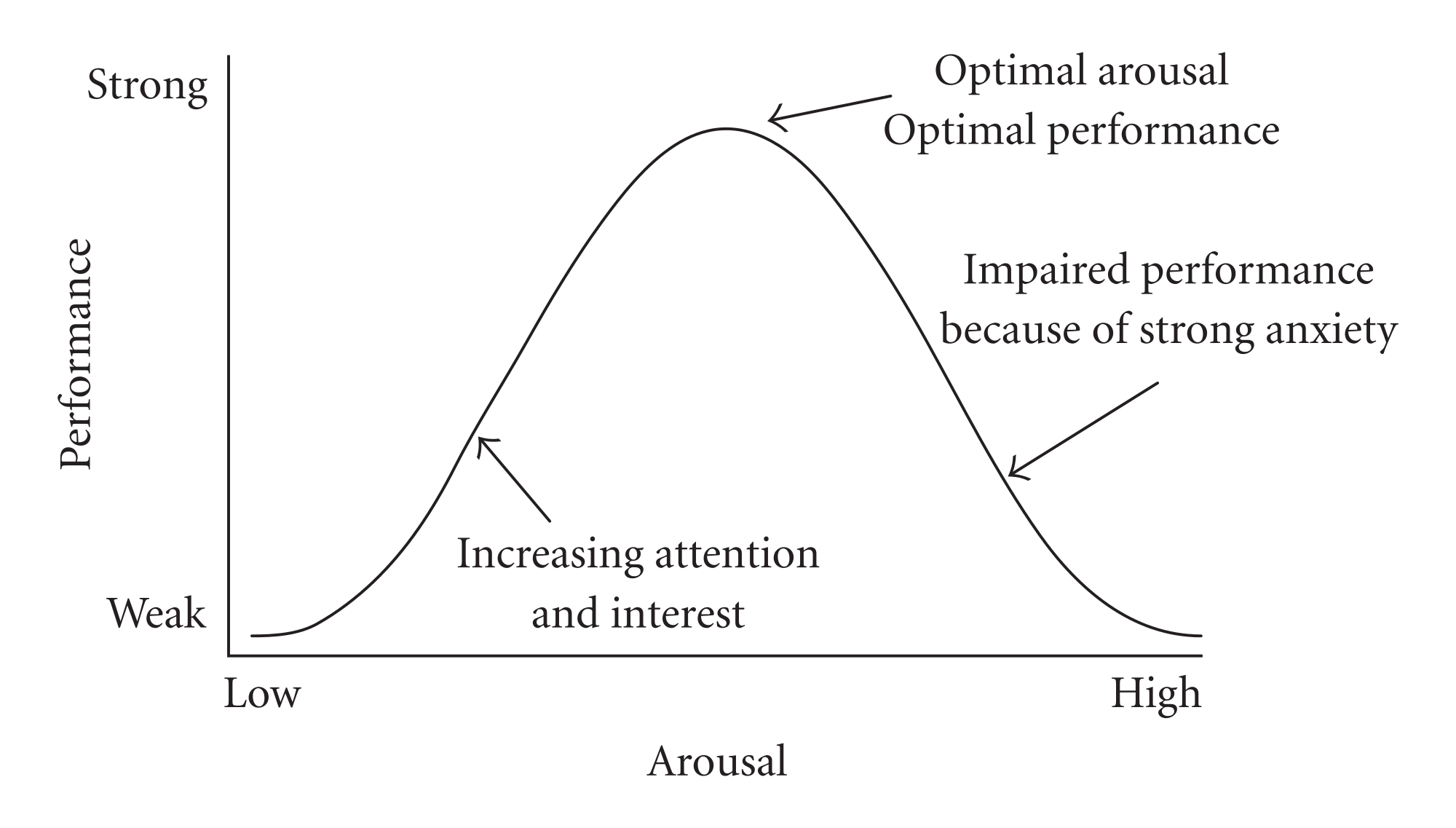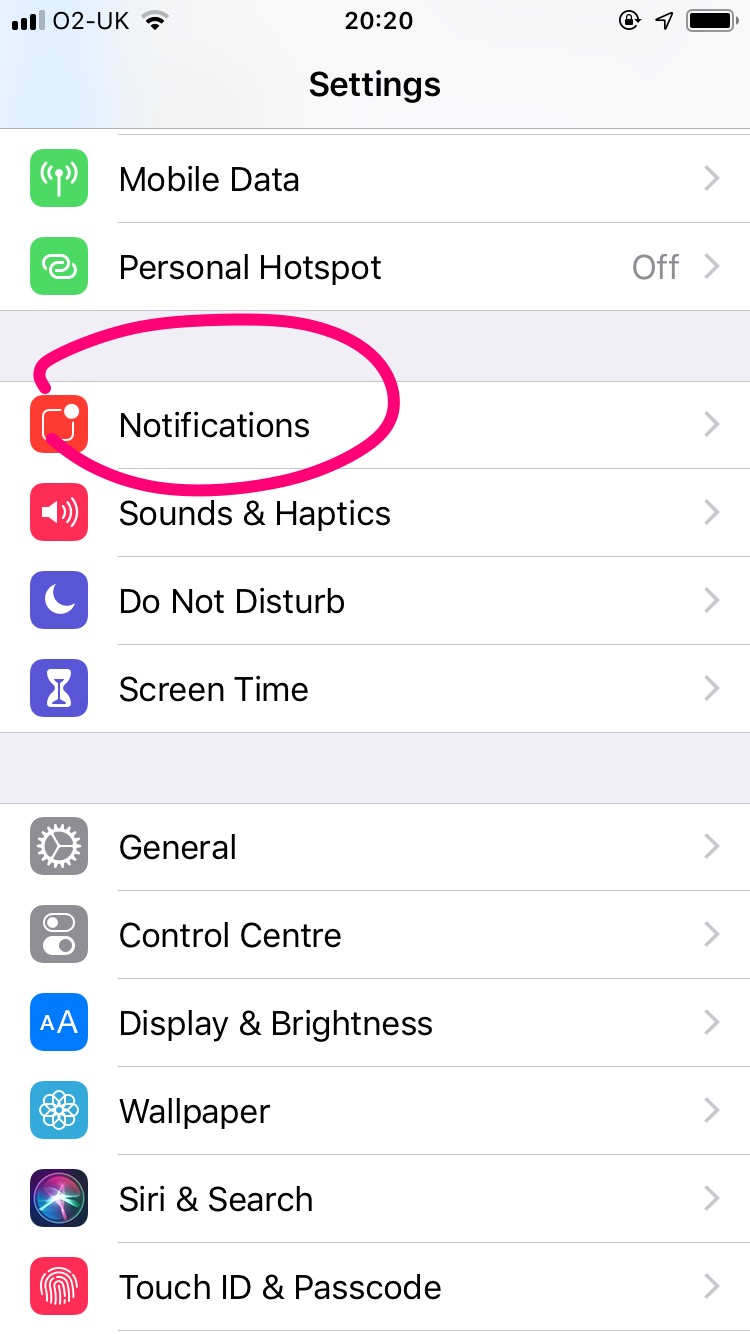This guide is designed to help you understand:
1). What exam stress is
2). How you can view exam stress
3). What you can do about exam stress
What is exam stress?
Without getting into too much unnecessary detail I reckon the definition below will suffice for the purpose of this guide.
Exam stress is a feeling of being under abnormal pressure and fearing your exams are going to go badly. As a result, you may feel influencing the outcome of your exams is beyond your control. This feeling is created by hormones and chemicals released in the body as a consequence of an external factor (exams) which can also cause other negative mental and physical symptoms.
(Source: I pulled together this definition together from how stress is talked about on www.psychologytoday.com)
How to view exam stress?
Understand the Yerkes Dodson Law.
This is a ‘law’ named after US psychologists Robert Yerkes and John Dodson who published an article in the Journal of Comparative Neurology and Psychologyin 1908 on the ‘Relation of Strength of Stimulus to Rapidity of Habit-formation’.
All you need to know is this:
The law dictates that performance increases with physiological or mental ‘arousal’, but only up to a point. When levels of arousal become too high, performance decreases.
Side note: replace the broad term ‘arousal’ with the word stress and you have something which makes sense within the context of this article.
Graph showing the Yerkes Dodson Law bell curve
Basically, exam stress is a good thing, up to the point where it fosters focused performance, but too much of it can cause overwhelm and decreased performance.
Without stress we have little pushing us into action. In fact, we can actually end up becoming super stressed out by doing nothing constructive! When stress kicks in and helps us pull off that deadline we thought was a lost cause it becomes beneficial. But when stress results in negative symptoms such as insomnia, poor concentration and an impaired ability to do the daily things we normally do, we know we need to reign it back under control.
Now that we’ve established stress isn’t something to be ignored but that it should be recongised, carefully managed, and then used to our advantage, here’s what you can do…
What you can do about Exam Stress….
Everyone experiences stress differently and, because of this, a different solution or combination of solutions are necessary. Below I’ve listed out a load which you can DJ and remix into your own stress relieving formula.
Before you implement any of them I recommend you take the following 3 step approach when you feel you need to recalibrate your stress levels:
Perspective - recognise you need to do something to manage your stress. Do this by pausing, taking a time out or stepping away from what you are currently doing. This should set you up for the next step.
Planning - allocate time to decide what you’re going to do to manage your stress. This plan should include specific activities.
Routine- you then need to slot these activities into your daily routine so that they act to recalibrate your stress levels at regular intervals in order to maintain optimum performance throughout the day and into the future.
Here are some activities you can do to manage your exam stress levels. Remember to adopt and remix as you see fit!
Breathe
It’s the simplest activity on this list yet it’s probably the best initial go-to in order to gain some perspective on a situation. Consciously practice making this part of how you approach stressful situations. Also, breathe from the belly, not the chest. By letting your diaphragm contract downwards a greater pressure imbalance between the space inside your chest and the external environment is created. The result: more good sweet air is going to come rushing to your aid. In an exam situation controlling your breathing is going to help recall from your memory and think more clearly because more oxygen improves brain and body functions.
Inner Circle Huddle Visualisation Technique
This is a psychological technique which I often use when faced with any kind of stressful situation. It involves listing the few things which really matter to you in life (people, ideas, activities, experiences etc.) But only enough to count on two hands (roughly the size of a starting 11 footie team - hence the 'inner circle huddle' name I made up). By stripping away all the inessential fluff and rubbish you’re able to refocus your attention on what’s truly important in life. All of the sudden a stressful exam situation appears a lot smaller and less intimidating.
Yes, I’ve just made this technique up, but I’m pretty sure some of its effectiveness is rooted in Professor Robin Dunbar’s theory of 150 connections being the maximum number of quality relationships any human can sustain. The internet and smartphones encourage us to take on more and more ‘stuff’ in our lives (think relationships, media and activities) more so than we ever have done before. This can be a blessing and a curse depending on how these opportunities are managed. Having a psychological technique in your locker to simplify life and identify what truly matters to you can really help bring some clarity to a stressful situation.
Win Back Time
Attention. Is. The. New. Global. Currency. Yes, many things which occupy a lot of our time (think smartphones and all the stuff we can do on them) though they might be ‘free’ actually cost us dearly in the form of the time they occupy which could be used to gain some perspective, form our plans and execute our routines.
I’d encourage you to adopt this mindset that whenever you’re spending time on anything within the digital attention economy. Equate the digital time you spend to cold hard cash. If you’re not sure how much your time is worth, as a general rule, I’d say the younger you are the more valuable it is. This might be counterintuitive, you’re probably thinking the CEO of some big company definitely charges more for their time than you could. The counter argument to this would be that the time a young person has to allow investments of time to compound and grow is far greater than any crusty old CEO! Want a ballpark estimate of how much your time is worth? Just look at the wealth some of the key players within the attention economy such as Google and Facebook have been able to build by making your time and preferences their product. Once you make this mindset shift (and that’s what it is, you either believe it or you don’t) you have much more time to keep an eye on your stress levels and start using them to your advantage.
If you’re finding it hard to make this psychological shift and need some more actionable steps to get ahold of your time try some of these time saving apps which can help reduce random time-wasting on smartphones and the internet:
Digital Minimalism
I recently read ‘Digital Minimalism’ By Cal Newport and refer to it daily to help guide my technology use. This is a slight continuation of the point just made but I thought I’d include it as it’s the best holistic philosophy I’ve come across to become more in control of your time in a digitally dominated world. Here’s a summary of what the book aims to provide:
A philosophy of technology use in which you focus your online time on a small number of carefully selected and optimised actives that strongly support things you value and then happily miss out on everything else.
In terms of exam stress, Digital Minimalism can help create time for you to gain some perspective on your exam challenges, create a plan to address them and carry out the tasks and activities required to make headway.
Just a heads up, I’m currently working on forming my own philosophy of technology use to help students working with The Exam Coach.
Control your vibe
This one’s a bit ‘vibesy' but I believe in it wholeheartedly. If you’re spending time with stressed out people their behaviour will eventually rub off on you. Whether it’s the night before the exam and you’re lending an ear to a friend stressing because they’ve done no work, or if you’re standing next to someone frantically trying to take a guess at what questions might come up immediately before you enter an exam. Stay clear and direct them to this blog post.👍 It does nothing but tip you over the wrong side of the Yerkes-Dodson bell curve.
Spend time in nature
This one’s just true. There have been huge studies published on the benefits of experiencing the great outdoors. Drop what you’re doing and get outside.
Take the dog(s) with you
If you’ve watched any of my Snapchat or Instagram stories you’re bound to have caught a glimpse of the Revision Retrievers. Yes, that is a dog breed 😉. Not only do they nag you to do the point made above more often but you can learn a lot from them too…There’s good reason they’re happy 99% of the time, they appreciate the small things in life and focus on the stuff that matters - food, sleep and belly rubs.
Fear setting
I’ve used this tool from Tim Ferriss’ blog a number of times to make some important choices. I also believe it can be used as an exam stress management tool! The reason for this is because it provides a great framework for assessing the consequences of what’s stressing you out about exams from many different perspectives. Here’s a brief run through of a version I’ve adapted for students taking exams:
Define the worst possible outcome
What steps could you take to repair the damage?
What are the benefits of more probable scenarios?
If you were kicked out of school today how could you get back on the same career track if you absolutely had to?
What are you putting off out of fear?
What is postponing action costing you?
What are you waiting for?
When we write down our fears and think about what we could do to address them if they did occur, we gain the perspective and power to do something about them.
Music
Consciously using music as a stress management tool is something I’ve been testing recently. Previously I would just whack on a few bangers and that would be that. Now I’m experimenting with genres such as as Lo-Fi or jazz instrumentals for my hit of lyric-less relaxing music. Other times I’m listening to music where the lyrics act as a reminder of the simplicity (American Country) or tougher sides (London Grime) of life. All of these have stress relieving properties by reminding us of alternative perspectives of the world outside our own. See yourself within the broader context of the world and your problems will appear much smaller.
Use the Swish visualisation technique
This is a technique I learned when I attended one of Tony Robbins' Unleash The Power Within seminars back in 2015. Without thinking this alone will make everything better (nothing changes unless you actually do something about it), the swish visualisation technique has certainly helped adopt a more positive outlook on a challenging task.
Here’s a modified and simplified version I often use to get myself into a positive frame of mind:
Allow the stressful/negative feeling/image to fill your mind (eg. You panicking in an exam)
In the bottom right hand corner of the image create a smaller image of the positive outcome you’d like to achieve (eg. You cruising through an exam paper with ease)
Make the positive image bigger and bigger so it covers the negative image, whilst the positive image grows its colours become more vivid and bold whilst the negative image becomes darker and hazier
Repeat this process of the positive image expanding or 'swishing’ to cover the negative image 2-3 times
This isn’t a solution in and of itself but it can help get concentrate your focus on a positive goal. I liken it to walking along a precipice on a rock face. The more you’re looking down the more likely you are to fall off. Look forward, focus on the goal and the end point.
To summarise….
Get into the habit of checking in on your stress levels, gaining some perspective on them, planning and integrating some of the exercises and techniques above into your daily schedule. If you can do this, you’ll be in a far stronger position to go through your exams with the optimal level of stress gently pushing you to perform your best.
Want to listen to some more content about exam stress and anxiety? Try these podcast episodes…
Pressure Is The Tool For Growth (Ep. 20)













